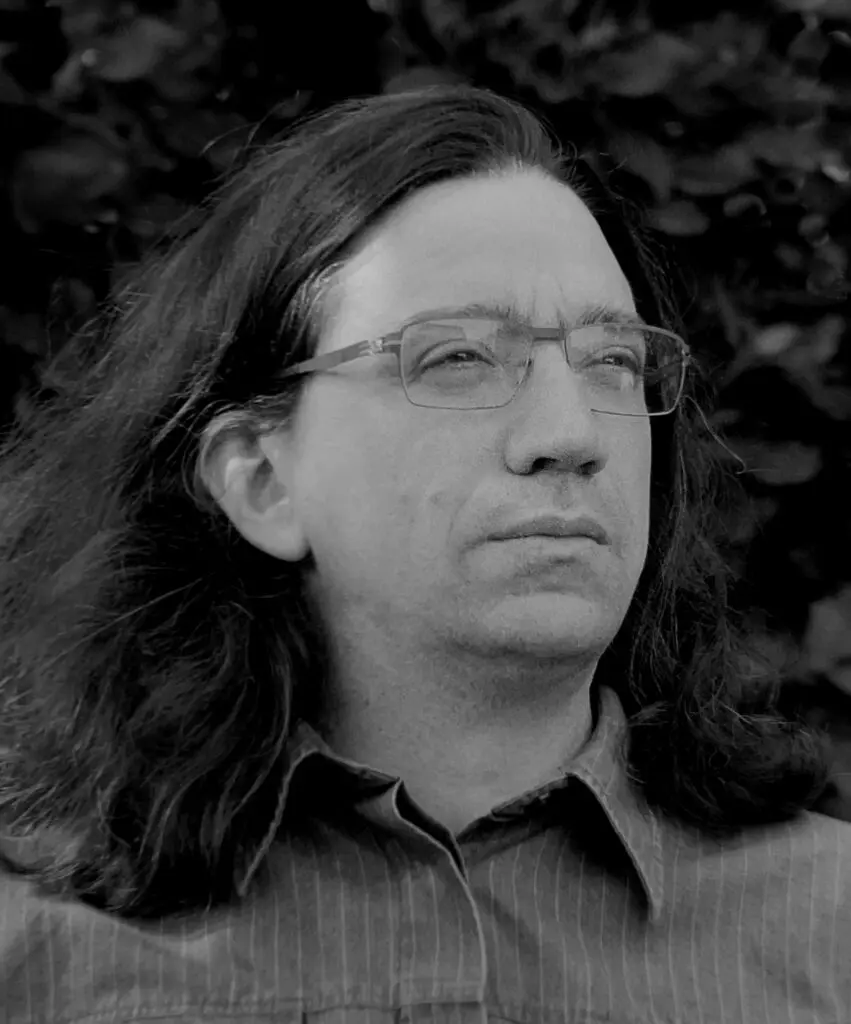Curtis Yarvin, born in 1973, is a software developer and political theorist whose controversial neo-reactionary views have rippled through both Silicon Valley and right-wing political circles. Writing under the pseudonym Mencius Moldbug, Yarvin gained notoriety for his influential blog “Unqualified Reservations,” where he advanced ideas that challenge the foundations of democracy and equality.
Yarvin wasn’t always a fringe political figure. Raised in a secular, liberal family—his paternal grandparents were Jewish American communists, and his father worked for the U.S. Foreign Service—he grew up with a global perspective, spending part of his childhood in Cyprus. But it was after reading figures like Thomas Carlyle and Hans-Hermann Hoppe that Yarvin turned sharply to the right. Disillusioned by libertarianism, he carved out his own niche in far-right ideology, a space he has termed “neo-reaction.”

“The Cathedral” and Neo-Reactionary Thought
At the heart of Yarvin’s philosophy is what he calls “formalism”—a system that would replace modern democracy with something akin to monarchy. His ideas reject progressive norms and push for a consolidation of power akin to aligning political authority with property rights. Yarvin coined the term “Cathedral” to describe the intertwined power structures of mainstream media, academia, and the bureaucracy that he believes work together to perpetuate liberal democracy.
The alt-right movement critical to Trump‘s election in 2016 was influenced by neoreactionary ideology, and many key figures and beliefs overlap between these facets of the modern right-wing movement. Both arms share a close relationship to Silicon Valley, from a desire to be ruled by a technocratic elite to meme culture and beyond. They both share connections to the ideology of accelerationism espoused by venture capitalist Marc Andreessen and others — resulting in a “strange bedfellows” effect within the mainstream Republican Party in which technocratic elites share common goals of overthrowing democracy with right-wing religious zealots including, most prominently, Christian nationalists.
Silicon Valley Influence
Yarvin’s ideologies have found an audience among Silicon Valley’s elite, where some of his most ardent admirers hold significant clout. Peter Thiel, co-founder of PayPal and noted libertarian-turned-conservative, has supported Yarvin’s work both ideologically and financially. Thiel’s venture capital firm, Founders Fund, even backed Yarvin’s tech startup, Tlon, which developed the decentralized computing platform Urbit.
Steve Bannon, the former White House strategist, is also a known reader of Yarvin’s work, while political figures like 2024 Vice Presidential candidate J.D. Vance and failed 2022 AZ Senate candidate Blake Masters—both backed financially by Thiel—have cited and promoted Yarvin’s ideas.
Tech Hubris Meets Political Hubris
Yarvin’s Urbit project, launched in 2002, is a decentralized computing platform designed to overhaul the current internet structure, aligning with his broader vision of restructuring power. Though he left Tlon in 2019, he remains involved with Urbit’s development and continues to influence the tech space through his ideas, despite the controversy surrounding them.
Critics have slammed Yarvin’s views as deeply racist and fascistic, pointing to his writings that flirt with dangerous notions about race and slavery. His ideas—though offensive to many—seem to thrive in niche spaces where libertarian techno-utopianism meets far-right authoritarianism, making him a key figure in the ongoing discourse about the future of governance, especially in a tech-dominated age.
Here’s Rachel Maddow’s segment highlighting the Vance-Yarvin connection:
Curtis Yarvin represents an ideological fusion that’s hard to ignore: Silicon Valley’s boundless ambition meets a longing for autocratic rule. In this strange nexus, he’s helped shape a disturbing vision of the future, one where tech CEOs could potentially wear the crown.
Comments are closed.